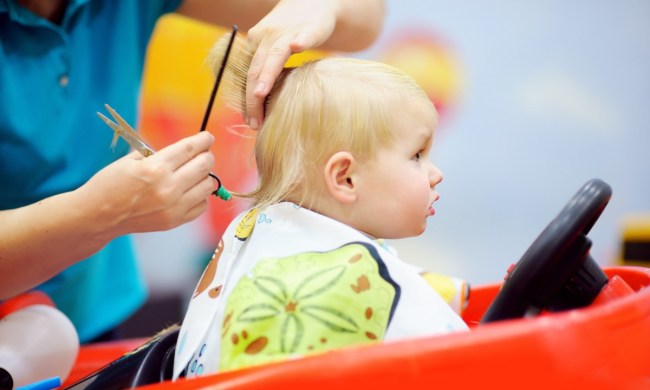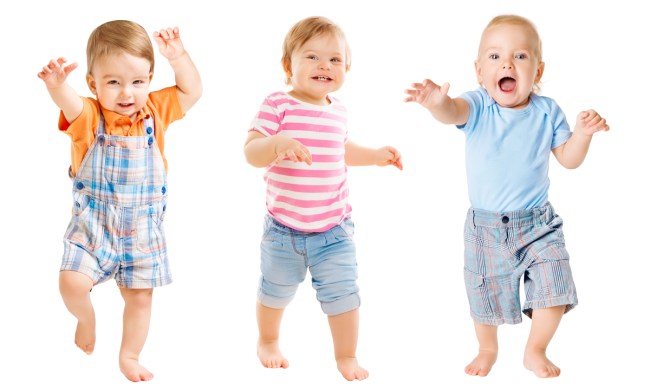
Before you became a parent, you may have heard of the “terrible twos.” The age is reportedly hallmarked by tantrums and boundary (and parental button) pushing.
No one warned you about what it was like to raise 3-year-olds, or as some call them, “threenagers.” The term derives from the idea that your three-year-old acts like they’re going on 13. The sass, eye-rolling, back talk, and rebellious nature are challenges you thought you had another decade to prepare for — but your kid had other ideas.
It can feel more consequential than the tantrums of 2-year-olds. At this age, 3-year-olds are likely getting ready to enter school, and they’re no longer toddlers. The truth is the behavior is natural, and at times, humorous. However, it can be a challenge, too, especially if you frequently feel more and more like a sous chef for a stubbornly picky eater or at your end after the day’s third meltdown over bread crust.
Take a beat. This guide will help you navigate 3-year-olds (or at least feel less alone).
Your 3-year-old has more tantrums than a 2-year-old
You may have hoped Target meltdowns were a thing of the past once your little one graduated from toddlerhood. An increase in tantrums may be an unwelcome surprise of raising a 3-year-old. Every kid is different, but this behavior is not uncommon. At age 3, kids have more language. However, emotional regulation is still challenging for their still-developing minds. As a result, seemingly minor issues, like only being allowed to pick out one toy car at Target, can elicit big tears.
Fixes: Remember that crying is a release for children (and adults, too). You’re also not going to get through to a little one mid-tantrum. Take them somewhere quiet so they can have their feelings. Once they’re calm, the two of you can reconnect. The good news is that children are more capable of identifying emotions and have broader vocabularies at 3. You can say things like, “You really wanted a blue car and a green car. That made you angry. I get angry, too, when I don’t get what I want.” Then talk them through coping strategies, like breathing or jumping up and down.

Transition problems
Your child is gobbling up pancakes for breakfast and in a good mood. Then, you mention that it’s time to go to school. You’re already running late. Your threenager scoffs at the idea, refusing to put on their shoes and taking them off as soon as you put them on in a rush. Transitions can be challenging, especially if they involve multiple steps (putting away shoes, getting in the car, getting strapped into a seatbelt, walking into school, and finally starting the school day). They can overwhelm 3-year-olds, especially ones who enjoy whatever they are currently doing and are not ready to move on.
Fixes: First, put your child in the best position to succeed. Plan to leave the house 5 to 10 minutes earlier than you would if you were going somewhere yourself (spoiler alert: You’ll probably leave just in time with all the pushback). Give your child a few minutes’ heads-up and walk them through what’s next. “We’re going to take some more bites of pancakes. Then, it’s time to go to school. We’ll put your shoes on, and I’ll help you get in your car seat.” Repeat this a few times until it’s time to go, so your child feels more prepared.
Often, transitions can happen around screen time. With about 5 to 10 minutes left in the show, you might go in with some food or a book to break your child’s focus on the screen and take a similar approach, talking about how you’ll turn off the TV and move on to another task. Also, remember: You’re the parent. If you don’t think a show works for your child — even after allowing it — you can nix it in your home (just be prepared to help them navigate big feelings about it).

Not following directions
You spent three hours on a rib roast, and your child asks for peanut butter and jelly cut in triangles. They had that for breakfast and lunch; you’re too exhausted to make a second meal. They refuse when you ask them to eat what’s on their plate. They may also back talk (“How about we eat lunch?” “How about Paw Patrol?”) and an overall refusal to follow any directives.
You should expect this behavior from a 3-year-old. There are several reasons. They have more language to exert themselves, and they’re trying to test boundaries — a natural part of learning what’s acceptable and what’s not. Kids in school or daycare likely get dictated to all day by providers and teachers. At home, they want to seize some level of control.
Fixes: If transitioning back home from school is challenging, try doing something calm first thing instead of rushing to errands or play dates. Give your child some choices to empower them: “Peanut butter or ham and cheese?” “Blue shirt or green?”
Parenting a 3-year-old can feel like a challenge. You may not have felt ready for it. Be gentle with them and yourself. Your child is learning more about the world, trying to take it all in, and figuring out their boundaries. As a parent, you have to teach your child, but you’re learning, too. Remember, the threenager will pass, and it’s rarely a real emergency (even if it seems like one to them). Breathe, and try to be the adult in the room. If you mess up and snap, apologize to your child, forgive yourself, and move on. Perhaps above all, try to laugh about some of the sass (out of view of them). It’s sort of funny, isn’t it?



